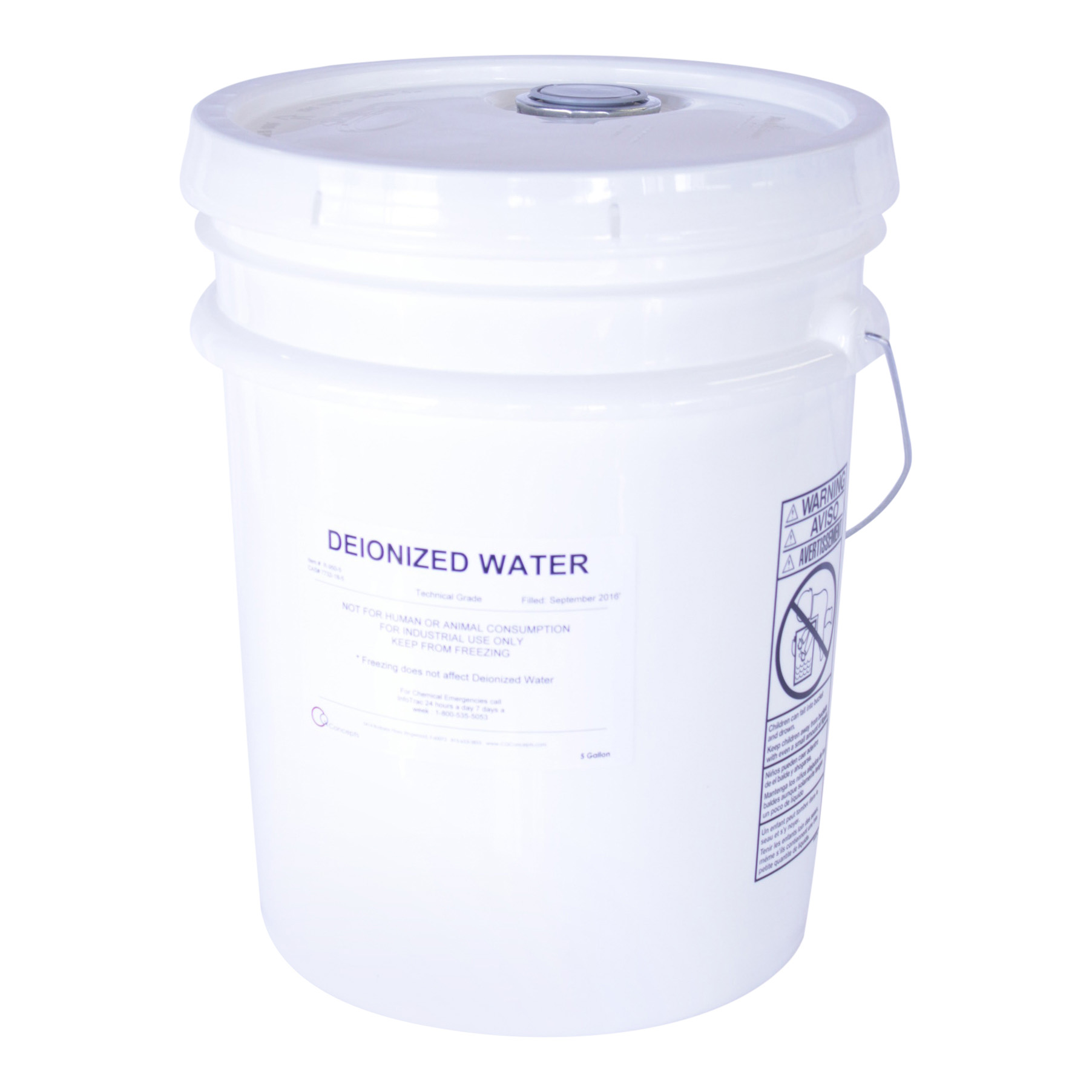Deionized Water Boiling Point
Do you know the boiling point of deionized water? It's a fascinating topic that requires attention from those working with water in industries such as healthcare, pharmaceuticals, and laboratory testing. In this blog post, we'll explore why deionized water boiling point matters and what you need to know about it.
Pain Points Related to Deionized Water Boiling Point
Deionized water is used in many industrial processes where the use of regular water can cause damage to equipment or produce inaccurate results in experiments. The main pain points related to deionized water boiling point arise from its unique chemical structure. Deionized water is created by removing all minerals and salts from regular water, rendering it resistant to electrical conductivity. Due to its lack of ions, it has a lower boiling point than regular water. This is why it is so important for those that rely on deionized water to understand its boiling point and how to utilize it safely.
What is the Target of Deionized Water Boiling Point?
The target of deionized water boiling point is to maintain a consistent temperature while avoiding any unintended reactions or impurities from entering the water. Many experiments and processes require water to be at a specific temperature. By understanding deionized water boiling point and its properties, technicians and scientists can ensure that any results they obtain are accurate and reliable.
Summarizing Main Points Related to Deionized Water Boiling Point
In summary, deionized water has a unique boiling point that must be considered in many industrial applications. With its lack of ions, it creates a lower boiling point than regular water, presenting unique challenges and opportunities. Understanding this target is essential for maintaining consistent temperatures in processes and experiments and obtaining accurate and reliable results.
Deionized Water Boiling Point: Explained
Deionized water boiling point is a critical factor in many industrial applications, from healthcare to laboratory testing. One personal experience that highlights the importance of understanding deionized water boiling point is working in laboratory settings. In these environments, temperature and accuracy are critical to the reliability and validity of results. Deionized water, with its low boiling point and lack of ions, is the ideal choice for many experiments requiring sterilization and cleaning. Understanding its properties and how to properly use deionized water is essential to obtaining accurate data.

Deionized Water Boiling Point and Sterilization
In healthcare settings, deionized water boiling point is essential for sterilization processes. Medical instruments and equipment require consistent sterilization methods to ensure patient safety and proper function. Deionized water's low boiling point makes it ideal for sterilization processes as it can reach high temperatures without risk of damage to the equipment. As with laboratory settings, understanding the properties of deionized water and how to use it correctly are essential to properly sterilize equipment and maintain patient safety.

More About Deionized Water Boiling Point
Deionized water boiling point is a fascinating topic that requires attention and understanding. Its chemical structure and properties make it a critical component in many industrial processes, from laboratory testing to healthcare settings. Understanding its unique boiling point and how to safely and effectively use it is essential for obtaining accurate results and maintaining patient safety.
The Future of Deionized Water Boiling Point
As technology continues to advance, so too will our understanding of deionized water boiling point and its applications. The importance of proper water usage in industrial settings cannot be understated, and deionized water will likely play an even greater role in ensuring accurate results and maintaining patient safety.
Question and Answer about Deionized Water Boiling Point
1. What is the boiling point of deionized water?
Deionized water boiling point can vary depending on the level of deionization. In general, the boiling point of deionized water is around 100°C (212°F).
2. Why is deionized water used in laboratory testing?
Deionized water is used in laboratory testing to ensure accurate results and prevent impurities in experiments.
3. Can deionized water be used in medical applications?
Yes, deionized water is often used in medical applications such as sterilization processes.
4. What are some safety precautions when using deionized water?
Safety precautions when using deionized water include wearing protective gear, avoiding inhalation or ingestion of the water, and ensuring proper storage and usage.
Conclusion of Deionized Water Boiling Point
Deionized water boiling point is a critical factor to understand in many industrial applications, from healthcare to laboratory testing. By understanding its unique properties, technicians and scientists can ensure accurate and reliable results while maintaining patient safety. As technology advances, the importance of proper water usage and understanding of deionized water boiling point will only increase, representing a vital component of many industrial processes for years to come.
Gallery
5L Triple Distilled Deionized Water, For Laboratory, Rs 180/litre | ID

Photo Credit by: bing.com / distilled deionized
Deionized Water- 5 Gallons

Photo Credit by: bing.com / deionized water gallons
What Is The Boiling Point Of Water?
/BoilingWater-58dd1c2a5f9b5846837d2a23.jpg)
Photo Credit by: bing.com / boiling water point drinking before benefits health
Boiling Point Of Water Sea Level
/BoilingWater-58dd1c2a5f9b5846837d2a23.jpg)
Photo Credit by: bing.com / boiling water point sea level condensation know knew humidity forgotten mould already bit little but vapour dryfix
What Is The Boiling Point Of Distilled Water? | Reference.com

Photo Credit by: bing.com / water boiling point distilled reference celsius fahrenheit degrees